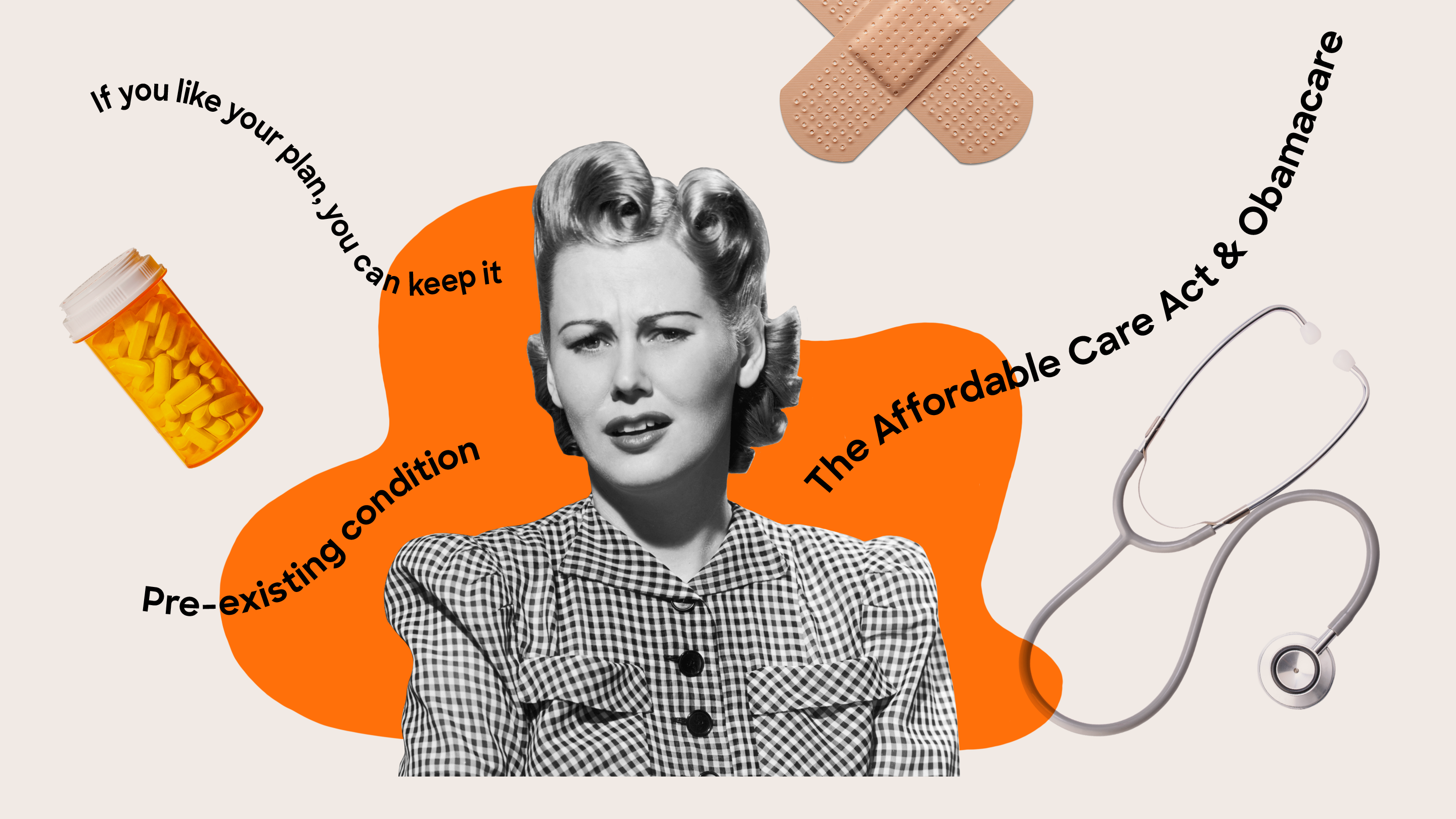With two Democratic primary debates down and another on the way, we are already deep in the throes of election season (as if it ever ends).
Health care was arguably the biggest issue in the midterm election of 2018, and it still looms in the current race to become president. You've probably heard — and will continue to hear over the next year — several health care buzzwords coming out of the various campaigns.
Not sure what any of them mean? We've written this guide to help you understand all the health care jargon coming out of the 2020 presidential election.
The Affordable Care Act & Obamacare
We should probably start here. It's been about a decade since President Barack Obama signed his signature domestic policy into law, but just in case there anyone hasn't figured it out: The Affordable Care Act is Obamacare. They are one and the same.
Obamacare is more than a federal marketplaces where you can buy insurance. It made sweeping changes to health policy, from allowing young adults to stay on their parents' plans until they turned 26, to requiring health plans to cover pre-existing conditions (more on that later.)
When politicians talk about health care reform, they're talking about building on the changes made by the ACA or undoing them.
Medicare for All
The most talked-about health care proposal in the election, Medicare for All is a proposal to expand Medicare, a federal health insurance program for people over 65, to the entire country (not Medicaid, the program for lower-income people — they're different). Sen. Bernie Sanders has sponsored a bill in Congress to establish a Medicare for All program.
The idea has the support of many of the Democratic candidates. Sanders' proposal would basically eliminate private health insurance and leave the government as the lone payer in the health care system.
Single-payer
Medicare for All is an example of a single-payer health care system. Under such a plan, everyone would have the same coverage.
Proponents argue that this would help the nearly 30 million people who don't have access to insurance and reduce the cost of the U.S. health care system, which is the most expensive in the world. Critics believe single-payer would lead to long wait times or reduce access to certain medical services.
If you like your plan, you can keep it
Do people like their health insurance plans? That's one question up for debate when it comes to the future of health care.
Sanders' Medicare for All proposal would do away with private health insurance. More moderate candidates, like former Vice President Joe Biden, want to take a more piecemeal approach, expanding coverage without taking away existing policies.
Repeal & replace
Since he came into office, President Donald Trump has been trying to get rid of the Affordable Care Act, the sweeping health law signed by his predecessor. Whether on Twitter or at rallies, you'll often hear the president say he wants to "repeal and replace" Obamacare.
The repeal part is simple enough to understand. But Trump and his fellow Republicans have had trouble with coming up with a wholesale replacement for Obamacare.
In the meantime, Trump has chipped away at pieces of the law. This includes penalty for people who failed to sign up for health care and backing a lawsuit that would strike down the entire law.
Pre-existing conditions
Under the Affordable Care Act, health insurance plans must cover treatment for pre-existing medical conditions. Before former President Barack Obama's health law passed, people who had say, diabetes, might have had to pay higher prices for health care or been rejected for coverage outright.
Democrats and health advocates worry that a repeal of the Affordable Care Act would lead to the end of this protection.
Big pharma
High drug prices are a big concern for many voters and politicians have mostly blamed "big pharma," otherwise known as the pharmaceutical industry. Many Democrats are pushing for Medicare to negotiate drug prices directly. Trump also has his sights set on drug prices, and has talked about indexing prices to bring them in line with those paid in other countries.
Want more explainers in your inbox? Sign up for the Easy Money newsletter.
Image: Michele Constantini

